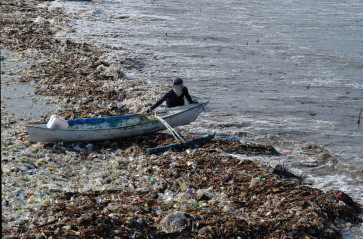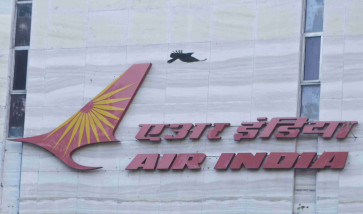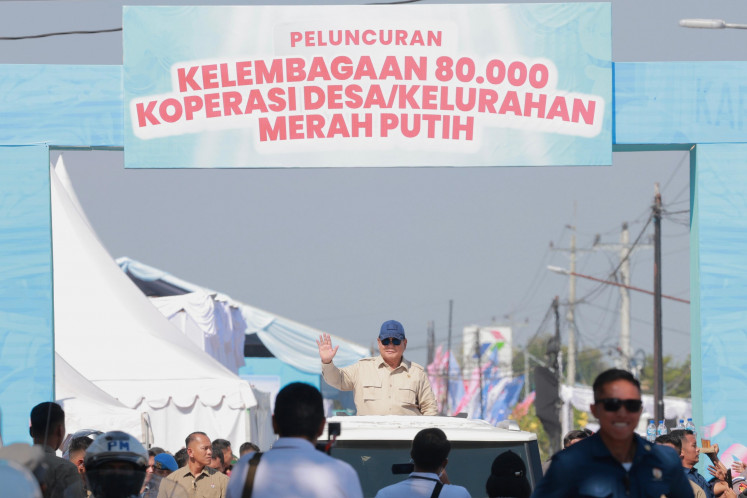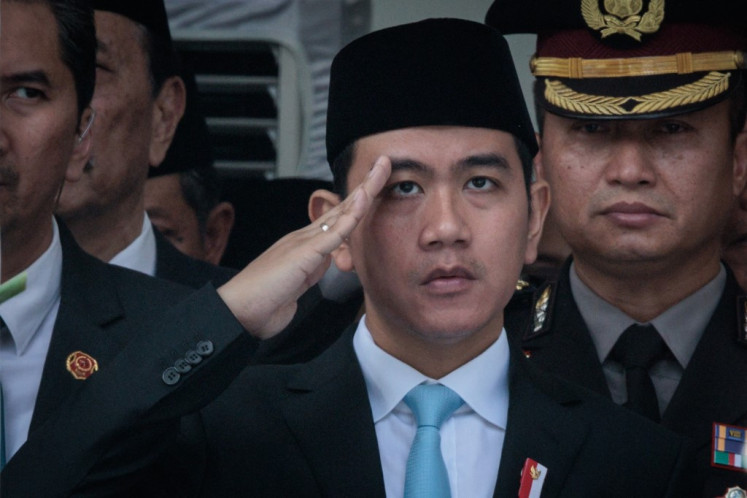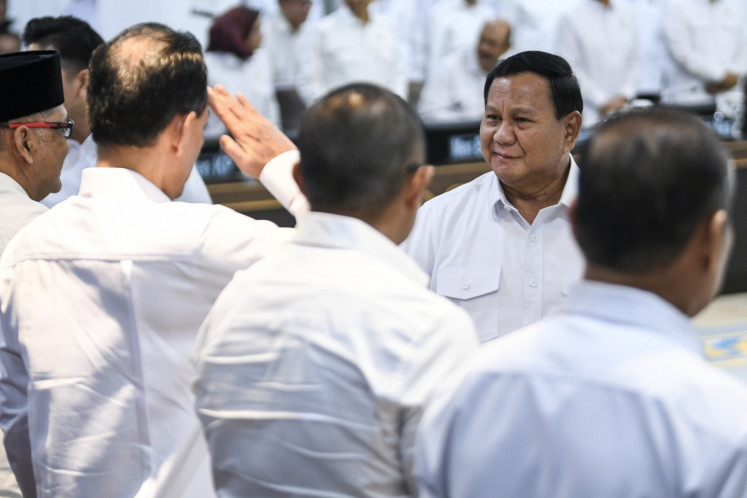Popular Reads
Top Results
Can't find what you're looking for?
View all search resultsPopular Reads
Top Results
Can't find what you're looking for?
View all search resultsMajority of palm oil businesses unsustainable
Most palm oil businesses across the country have yet to fulfill sustainability standards despite having obtained certificates demonstrating the sustainability of their practice and products, according to the latest data and reports from various organizations
Change text size
Gift Premium Articles
to Anyone
M
ost palm oil businesses across the country have yet to fulfill sustainability standards despite having obtained certificates demonstrating the sustainability of their practice and products, according to the latest data and reports from various organizations.
In 2017, the Agriculture Ministry recorded there were 14 million hectares of oil palm plantations across the country, which had produced more than 37 million tons of palm oil valued at Rp 266.8 trillion (US$18 billion).
The Roundtable on Sustainable Palm Oil (RSPO), a nonprofit multi-stakeholder organization on sustainable palm oil certification, recorded that out of the total plantation area, only 1.7 million hectares had received sustainability certification, as of November.
In terms of palm oil production, only 7 million tons of crude palm oil (CPO) are RSPO-certified.
If we look at the government’s equivalent certification, known as the Indonesian Sustainable Palm Oil (ISPO) certificate, the number does not get any better. In September, the government revealed that only 2.49 million ha of plantations and 10.2 tons of CPO products were certified.
Certification, including that issued by both the RSPO and the government, is one of many ways to show that farmers and mills have been producing palm oil-based products in a sustainable and environmentally friendly way.
While ISPO certification is required by the government, farmers and other parties need RSPO certification to be recognized in most international markets, which only accept the latter.
Certification, however, is not sufficient to ensure the sustainability of palm oil. “Large areas of palm oil plantations have been developed with little consideration for sustainability or the rights of local communities,” said Arie Rompas, Greenpeace Indonesia’s forest campaign team leader.
The group also issued a report titled Dying for Cookies, which claimed that snack food giant Mondelez International still got their palm oil from unsustainable sources. Mondelez is one of the world’s largest buyers of palm oil, which is used to make its products, including Oreo cookies.
Such sources of palm oil had caused the destruction of almost 25,000 ha of orangutan habitat, which is more than the size of 35,000 soccer fields, across the country in just two years, said the report.
According to the organization, Mondelez “gets much of this dirty palm oil from Wilmar International — the biggest and dirtiest palm oil trader in the world”.
“Wilmar’s suppliers have caused destruction mostly in Central and West Kalimantan. Their concessions are still owned by these companies and are still operating,” Arie said.
Mondelez has dismissed such allegations, saying the company had been prioritizing suppliers that meet sustainability criteria that allow retailers and customers to trace their products back to the mill. “We’re asking our direct suppliers to call on their upstream suppliers to map and monitor the plantations where oil palm is grown so we can drive further traceability. We’re also excluding 12 companies from our supply chain as a result of breaches,” the company said in a statement, refusing to reveal the 12 companies.
Wilmar, which is among the RSPO members that release annual sustainability reports on its website, did not respond to The Jakarta Post’s request for comment.
RSPO country director Tiur Rumondang said the organization could monitor the activity of its member through three mechanisms, namely an annual audit, complaint system as well as third-party monitoring.
“We’re currently studying the report [on Wilmar]. Should we find any suspicious activities, we should follow it up through a systematic effort to maintain sustainability standards,” she added.
Beyond the report, Arie said there had been a pervasive impact on local institutions and good governance, especially on plantations developed on either peatland or forest areas.
In October, the Corruption Eradication Commission arrested 14 individuals, comprising members of the Central Kalimantan Legislative Council and executives of palm oil companies PT Binasawit Abadi Pratama and PT Sinar Mas Agro Resources and Technology in a bribery case pertaining to the legislative body’s task of monitoring palm oil plantation permits in the province.


